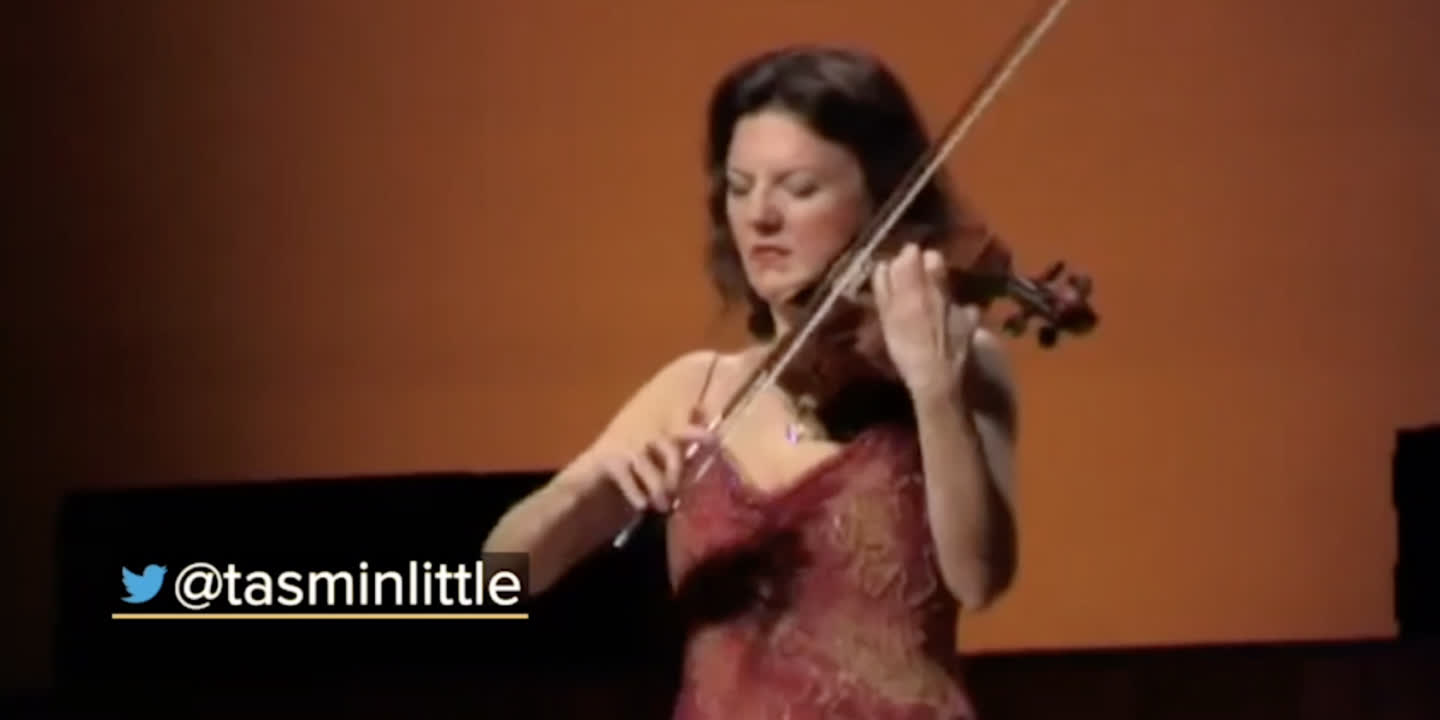有幸參與這個旅程,讓我有一個很深刻的體驗。我們明白到生活可以有很多不同模式,解決問題亦不只有一個方法。我很喜愛音樂,尤其欣賞一位偉大的小提琴和指揮家Yehudi Menuhin。他有一位來自英國的學生 Tasmin Little ,後來成為了世界知名和廣受大家愛戴的小提琴演奏家 。大家可能未必知道,Menuhin 和他的學生曾經在80年代一同參加一次十分難忘的旅程。我去了倫敦,邀請Tasmin 親身跟大家分享一下。
我在1982 年得到一次難得的機會,與一班 Yehudi Menuhin School 的同學一同到中國進行為期兩星期的訪問。在這之前Menuhin 已經到中國遊歷了幾次,他深深的愛上這地方和當地的年輕音樂學生。他希望我們也有機會踏足這片土地,感受一下這個讓人著迷的氣氛。這個機會實在難能可貴,因為那時候能夠親身踏足中國的外國人不多,亦成為了我其中一個最特別的經歷。我們到訪上海和當時仍然被稱作Peking 的北京遊覽了天壇、北海公園、故宮,又欣賞了中國戲曲,在音樂上進行文化交流。
對於當時只有17歲的你,這些經歷有甚麼影響?我的想像空間擴闊了,同時給予我對音樂有新的啟發。回顧自己,我們一直用同一個方法去學習音樂,這次的見聞卻展現了享受音樂的另一種方式。在交流的過程我們遇上了很多出色的中國音樂家,這是另一個十分重要的收穫。他們的演奏方式跟我們有很大的分別,但他們的深度,以至對音樂的熱愛都讓我們驚歎。在一個紛亂的時代,Yehudi Menuhin 帶來的是和平,我們應該如何去感受這一切?首先我們要學會放開自己固有的想法,要接受生活有多於一種模式,有接受和學習新事物的心,成為Menuhin 心目中學會終身學習的人。
But I think the whole point about a trip that we were lucky enough to embark on was that it was designed to show us how different life can be.
Hi, I'm James Chau and this is The China Current. Each week I bring you up close with fascinating people and stories shaping China and the world. I love music, especially Yehudi Menuhin, the violinist and conductor. And one of his students was Tasmin Little, the British concert violinist who's known and loved all around the world. What many people don't know is that Tasmin and Menuhin, student and teacher, went on a very special journey together in the early 1980s. I went to London, where Tasmin told me all about that.
and therefore there is no one way of doing things. I feel so incredibly privileged that in 1982 I was part of a small group of students from the Yehudi Menuhin School who went on a two week visit to China.
Yehudi Menuhin had already been several times and had fallen in love with China fallen in love with the young music students that he'd heard there and wanted very much for us at the school to have an opportunity to experience something of the magic of China. But it was something that I think, really, one of the most unique experiences of my life simply from the timing point of view because this was before many people were able to even enter that country.
When I visited Beijing and Shanghai and of course in those days it was called Peking. The Temple of Heaven by Beihai Park, the Forbidden City… Of course, we went to the Chinese opera…We had the cultural exchanges in the conservatories of music.
We heard young Chinese musicians play. It was so un-westernized…and seemed in places a little bit haphazard, but then you would have these magnificent buildings. And they were just looked quite stunning…and we were all we've just went around for about two weeks with our mouths wide open and our jaws on the ground
To a 17 year old, what did it do to you?
It just fired up my imagination. It inspired me, I think, is a simple answer. I was inspired.
Just six years……six very short years before you arrived that was the end of the Culture Revolution. When you were there, were there any traces that a very different time had existed right before you had stepped in?
One caught sight of some real poverty. We couldn't help but notice that there were some streets where people had very little clothing on and it was perfectly obvious that there was real poverty and deprivation. But I think the whole point about a trip that we were lucky enough to embark on was that it was designed to show us how different life can be
and therefore there is no one way of doing things.
So I think that Yehudi’s idea behind the trip was not for us as Westerners to go and show everybody else how it's done. Far from it. It was to let us know that we might have been learning music in a certain way but there are so many different ways of playing music and I think that that was another important message that I received from this trip…that actually the Chinese musicians that we heard were amazing. They played in very different ways to the way to we played but it was wonderful and they played with depth and passion and love of the music. And I tell you something else that I absolutely remember… something happened at a concert in China that I had, up until that point never, ever witnessed… and that was laughter in the concert hall. There was this one bit, which was very funny, the music was funny. It was designed to promote a smile. More than that it got belly laughter from the Chinese public, who had no inhibitions such as one would find in the West no inhibitions whatsoever about overtly displaying their enjoyment of the music. And I loved it.
Yehudi Menuhin was also a peace facilitator. We live in a world and at a time which is disturbing. So what do we need?
So it has got to surely be about us being able to let go of the sense that there is only one way of living in this life… it is about being open. It's about being tolerant. It's about being willing to be what Yehudi Menuhin was…an eternal student of life.
Thank you very, very much. It's been a real pleasure.

